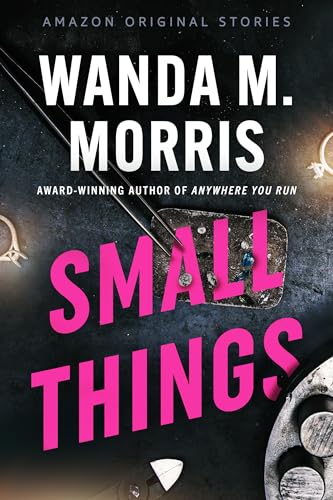
Wanda M. Morris’s Small Things is a short but powerful story that lingers long after the final line. At only thirty-six pages, it may be the briefest entry in Amazon’s Alibis collection, but it’s also among the most emotionally resonant. Beneath its simple setup lies a dark, intimate portrait of domestic abuse, resilience, and the quiet acts of defiance that help one woman reclaim a measure of power in a world that keeps trying to take it from her.
A Life Behind Closed Doors
To outsiders, Hannah’s marriage appears picture-perfect. She and her husband, Rusty, live a comfortable suburban life that seems enviable from the outside. But appearances are deceptive. Behind the walls of their home lies a different truth one of emotional cruelty, manipulation, and isolation. Rusty is controlling, belittling, and cruelly dismissive of Hannah’s passions. Her miscarriages have only deepened his resentment, and he insists she abandon any pursuit that gives her joy.
Hannah’s secret escape lies in the shed behind her home, where she makes delicate pieces of jewelry small tokens of beauty that symbolize freedom and self-worth. When Rusty threatens to take that away from her too, Hannah realizes she’s at a breaking point. What follows is her careful, deliberate plan to free herself once and for all, leaving behind no trace of her rebellion.
Domestic Horror Told with Precision
Morris crafts the story with chilling restraint. Rather than relying on overt violence or sensationalism, she builds tension through tone and implication. The real horror here is psychological the way an abuser can weaponize love and familiarity to dismantle another person’s spirit piece by piece. Every interaction between Hannah and Rusty crackles with quiet menace, and every “small thing” she does in secret becomes an act of resistance.
As reviewer Rosh noted, the story doesn’t follow the conventions of a typical mystery or thriller. It’s more of a domestic drama infused with dread, exploring the emotional realities of abuse and the subtle ways a woman fights to reclaim her autonomy. This understated approach makes Small Things feel all the more authentic and haunting.
Characterization That Cuts Deep
Hannah is the beating heart of the story. Her quiet strength, her cautious movements, and her moments of private joy all make her instantly relatable. She’s not a typical heroine of revenge fiction she’s a woman who has learned to survive through silence, observation, and patience. Her creativity in crafting jewelry mirrors her creativity in crafting escape; both require care, attention, and courage.
Rusty, by contrast, is written with unnerving precision. He is the kind of villain who never needs to raise his voice to instill fear. His cruelty lies in the everyday in the way he controls the air in the room, the words Hannah is allowed to say, the things she’s allowed to enjoy. His presence is suffocating even when he isn’t on the page.
Style and Structure
Morris’s prose is sharp and unadorned, perfectly suited to the story’s emotional tone. Every sentence feels deliberate, and the pacing unbroken by chapters mimics Hannah’s own tense, continuous reality. The lack of structural breaks keeps the reader inside Hannah’s headspace, where the dread is constant and the release, when it comes, feels both terrifying and cathartic.
Matt’s review captures the experience well: this is a “dark short story that captivates from the opening page.” There are no wasted words, no filler scenes just pure narrative focus. Morris understands that in stories like this, the smallest gestures can speak volumes.
A Subtle Ending with Lasting Impact
While the climax might feel understated to readers expecting a traditional thriller twist, the emotional payoff is undeniable. Hannah’s final act of liberation is not about spectacle but about reclaiming control in the quietest, most deliberate way possible. In keeping with the Alibis theme, it’s about deception, survival, and what one can get away with not in guilt, but in justice.
Final Thoughts
Small Things may be a brief read, but it’s one of remarkable emotional weight. Wanda M. Morris uses the short story format to maximum effect, distilling an entire life of abuse, endurance, and defiance into just a few pages. It’s a chilling yet empowering reminder of how even the smallest acts of rebellion can be transformative.
This isn’t a story of shock or spectacle; it’s one of quiet strength and poetic justice. For readers who appreciate dark domestic dramas that focus on emotion over action, Small Things is a must-read and another showcase of Morris’s talent for writing deeply human, morally complex stories.
Buy the book here: https://amzn.to/42vS1kx


